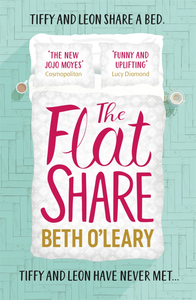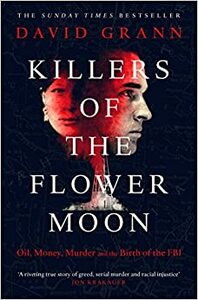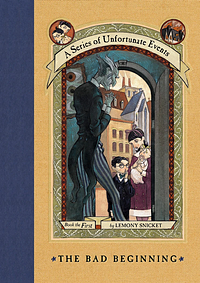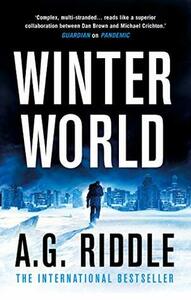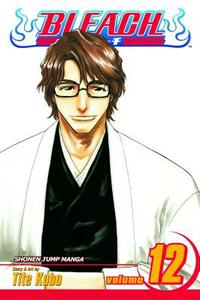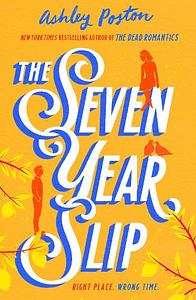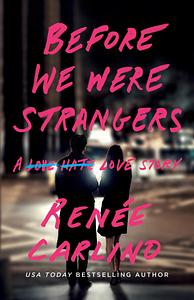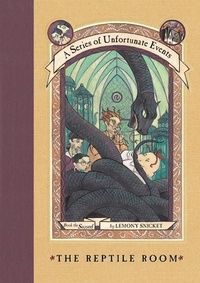Take a photo of a barcode or cover
lefttoread's Reviews (532)
"A Wanted Man," the 17th book in Lee Child's Jack Reacher series, is a mixed bag. It sticks closely to the tried-and-true formula: Reacher hitchhiking through America, getting caught up in some dangerous situation, and then methodically working his way out. While this setup has been enjoyable in the past, it’s starting to feel a bit stale.
The main issue is that Reacher himself doesn't seem to change or evolve. By now, he's almost a one-dimensional figure. There’s no new insight into his character, no surprises or growth. It's like he’s stuck in a loop, which makes it harder to stay invested. I used to find comfort in the familiar beats of these stories, but now they’re beginning to blur together and become repetitive.
That's not to say it's all bad. There’s still something undeniably entertaining about Child’s writing style—direct and no-nonsense, with just enough tension to keep you reading. However, without anything new to say or explore, it’s hard not to feel like the series is running out of steam.
The main issue is that Reacher himself doesn't seem to change or evolve. By now, he's almost a one-dimensional figure. There’s no new insight into his character, no surprises or growth. It's like he’s stuck in a loop, which makes it harder to stay invested. I used to find comfort in the familiar beats of these stories, but now they’re beginning to blur together and become repetitive.
That's not to say it's all bad. There’s still something undeniably entertaining about Child’s writing style—direct and no-nonsense, with just enough tension to keep you reading. However, without anything new to say or explore, it’s hard not to feel like the series is running out of steam.
The Flatshare by Beth O'Leary is a charming and heartfelt novel that strikes the perfect balance between humor and deep emotional exploration. It deals with themes that are both relatable and real, such as the lingering impact of past traumas and the difficulty of opening up to someone new after being hurt.
Beth O'Leary's writing shines in this book. She's able to capture the realities of navigating messy emotions and chaotic ex-partners while maintaining a sense of lightness and humor. The narrative is delivered from two distinct perspectives, which helps to immerse you in the lives of the main characters, Tiffy and Leon, as they navigate the unique situation of sharing a flat—and a bed—without ever meeting in person.
What I appreciated most was the way O'Leary handled the heavier topics. She doesn’t shy away from the emotional scars left by toxic relationships, but instead, she gently reveals how these experiences shape her characters' future interactions and their ability to trust again. It’s a sensitive portrayal that feels genuine and relatable.
At the same time, the book maintains a delightful humor that lightens the more serious moments, creating a well-rounded story that is both touching and uplifting. The quirky setup of two people falling in love via Post-It notes, shared tea mugs, and the awkward encounters is endearing, making it a joy to read from start to finish.
Beth O'Leary's writing shines in this book. She's able to capture the realities of navigating messy emotions and chaotic ex-partners while maintaining a sense of lightness and humor. The narrative is delivered from two distinct perspectives, which helps to immerse you in the lives of the main characters, Tiffy and Leon, as they navigate the unique situation of sharing a flat—and a bed—without ever meeting in person.
What I appreciated most was the way O'Leary handled the heavier topics. She doesn’t shy away from the emotional scars left by toxic relationships, but instead, she gently reveals how these experiences shape her characters' future interactions and their ability to trust again. It’s a sensitive portrayal that feels genuine and relatable.
At the same time, the book maintains a delightful humor that lightens the more serious moments, creating a well-rounded story that is both touching and uplifting. The quirky setup of two people falling in love via Post-It notes, shared tea mugs, and the awkward encounters is endearing, making it a joy to read from start to finish.
"Never Go Back," the 18th installment in Lee Child's Jack Reacher series, is a disappointing addition to what was once an exciting ride through the life of a lone-wolf vigilante. The series feels like it's running out of steam, weighed down by repetitive plot devices and a lack of genuine character development.
The repetitiveness became unbearable, the overuse of the "50-50" or "flip of the coin" analogy throughout the book was frustrating. What might have been a quirky insight into Reacher's thought process instead becomes an overplayed gimmick that feels forced, dulling the impact of the novel's tension and pacing. This reliance on worn-out catchphrases and predictable patterns detracts from the otherwise interesting aspects of the story.
Another significant letdown is the continued lack of character development. Eighteen books in, and Jack Reacher remains essentially the same: a lone drifter with few emotional layers and no real evolution. While his unchanging nature might appeal to fans who enjoy a consistent character (which I did for a small while), it starts to feel stagnant over such a long series. Reacher's motivations, decisions, and actions are predictable, and there is little to no growth or insight into who he is beyond the hardened ex-MP we met in the first book.
The repetitiveness became unbearable, the overuse of the "50-50" or "flip of the coin" analogy throughout the book was frustrating. What might have been a quirky insight into Reacher's thought process instead becomes an overplayed gimmick that feels forced, dulling the impact of the novel's tension and pacing. This reliance on worn-out catchphrases and predictable patterns detracts from the otherwise interesting aspects of the story.
Another significant letdown is the continued lack of character development. Eighteen books in, and Jack Reacher remains essentially the same: a lone drifter with few emotional layers and no real evolution. While his unchanging nature might appeal to fans who enjoy a consistent character (which I did for a small while), it starts to feel stagnant over such a long series. Reacher's motivations, decisions, and actions are predictable, and there is little to no growth or insight into who he is beyond the hardened ex-MP we met in the first book.
"Killers of the Flower Moon" is a compelling exploration of a dark chapter in American history that I was glad to delve into. David Grann's work sheds light on a harrowing piece of history that I was unaware of before picking up this book. It's both eye-opening and thought-provoking, bringing to the forefront the sinister events that surrounded the Osage murders in the 1920s.
The book started out strong, capturing my attention with its detailed narrative style. For a non-fiction work, it reads remarkably like fiction, which makes it an accessible and engaging read even for those who may not typically gravitate toward true crime or historical accounts. Grann's ability to weave historical facts with a narrative flair makes the story come alive.
However, after the first 100 pages, I felt the book began to lose some of its momentum. While it provides a thorough account of the events, it seemed to plateau in terms of new revelations or insights. I found myself wishing for more depth or a fresh perspective beyond the initial shock and horror of the crimes.
Overall, "Killers of the Flower Moon" is an important read that brings attention to a lesser-known piece of American history. Despite some pacing issues, it is still a worthwhile read for anyone interested in true crime, history, or social justice.
The book started out strong, capturing my attention with its detailed narrative style. For a non-fiction work, it reads remarkably like fiction, which makes it an accessible and engaging read even for those who may not typically gravitate toward true crime or historical accounts. Grann's ability to weave historical facts with a narrative flair makes the story come alive.
However, after the first 100 pages, I felt the book began to lose some of its momentum. While it provides a thorough account of the events, it seemed to plateau in terms of new revelations or insights. I found myself wishing for more depth or a fresh perspective beyond the initial shock and horror of the crimes.
Overall, "Killers of the Flower Moon" is an important read that brings attention to a lesser-known piece of American history. Despite some pacing issues, it is still a worthwhile read for anyone interested in true crime, history, or social justice.
The Bad Beginning, the first book in Lemony Snicket’s A Series of Unfortunate Events, is a darkly whimsical entry into a world where misfortune and melancholy seem to lurk around every corner. Despite the grim premise — three orphaned Baudelaire children facing off against the wicked Count Olaf who is after their fortune — the book has an unexpected charm that captivated me from start to finish.
What surprised me the most was just how fun and engaging this story is, even as it revels in its darkness. Snicket’s unique narrative voice adds a playful yet dark tone that makes the grim events feel oddly amusing and compelling. He's created a storyteller who is both warning you away and pulling you in deeper, making it impossible not to turn the next page. There’s a clever balance between the dreadful and the delightful, which makes the book stand out in children’s literature.
For a story dedicated to a younger audience, The Bad Beginning is darker than I expected. The themes of loss, danger, and betrayal are handled with a sophistication that doesn’t underestimate the intelligence or emotional capacity of its readers, whether young or adult. The dire circumstances faced by Violet, Klaus, and Sunny — from abusive guardianship to life-threatening schemes — are presented in a way that is gripping.
I didn’t expect to enjoy this book as much as I did, but I found myself fully immersed in the mess that the Baudelaires found themselves in and rooting for them at every turn. I was left eager to pick up the next book in the series.
What surprised me the most was just how fun and engaging this story is, even as it revels in its darkness. Snicket’s unique narrative voice adds a playful yet dark tone that makes the grim events feel oddly amusing and compelling. He's created a storyteller who is both warning you away and pulling you in deeper, making it impossible not to turn the next page. There’s a clever balance between the dreadful and the delightful, which makes the book stand out in children’s literature.
For a story dedicated to a younger audience, The Bad Beginning is darker than I expected. The themes of loss, danger, and betrayal are handled with a sophistication that doesn’t underestimate the intelligence or emotional capacity of its readers, whether young or adult. The dire circumstances faced by Violet, Klaus, and Sunny — from abusive guardianship to life-threatening schemes — are presented in a way that is gripping.
I didn’t expect to enjoy this book as much as I did, but I found myself fully immersed in the mess that the Baudelaires found themselves in and rooting for them at every turn. I was left eager to pick up the next book in the series.
Winter World by A.G. Riddle is a compelling read, although it didn’t quite align with my expectations. Going in, I was hoping for a gripping post-apocalyptic survival story, but what I found instead was a novel that leaned heavily into the sci-fi genre. While there are certainly elements of a post-apocalyptic world—Earth is gripped by a sudden ice age that threatens humanity’s survival—the narrative focuses more on the science fiction aspects.
That said, it’s a solid and enjoyable first entry in Riddle’s trilogy. The story is fast-paced, the sci-fi elements are executed well and I enjoyed following the main character.
There was some predictability from the start regarding some of the characters stories but I didn't mind that too much.
While Winter World might not have delivered the pure survival story I was hoping for, I’m curious to see where the trilogy goes from here and whether the next book will explore more of the survivalist themes I’m after or continue down the sci-fi path.
That said, it’s a solid and enjoyable first entry in Riddle’s trilogy. The story is fast-paced, the sci-fi elements are executed well and I enjoyed following the main character.
There was some predictability from the start regarding some of the characters stories but I didn't mind that too much.
While Winter World might not have delivered the pure survival story I was hoping for, I’m curious to see where the trilogy goes from here and whether the next book will explore more of the survivalist themes I’m after or continue down the sci-fi path.
"Bleach, Volume 12" is an exhilarating addition to Tite Kubo's iconic series, delivering the perfect blend of action, emotion, and character development that I love. This volume focuses heavily on Chad (a favourite of mine), whose quiet strength and unwavering loyalty finally get a well-deserved spotlight.
Chad's development in this volume is particularly compelling. Chad reveals a deeper emotional layer, showing us the lengths he is willing to go to protect his friends. Watching him tap into his own spiritual powers to fight with everything he's got is thrilling and adds a new dimension to his character that I absolutely loved.
Beyond Chad's arc, Volume 12 continues to expand on the richly diverse cast of characters that make Bleach so engaging. Each character, whether protagonist or antagonist, adds a unique flavor to the story. Ichigo's relentless pursuit to save Rukia grows more intense with every turn of the page, while Orihime, Uryu, and the rest of the crew get their moments to shine as well.
Chad's development in this volume is particularly compelling. Chad reveals a deeper emotional layer, showing us the lengths he is willing to go to protect his friends. Watching him tap into his own spiritual powers to fight with everything he's got is thrilling and adds a new dimension to his character that I absolutely loved.
Beyond Chad's arc, Volume 12 continues to expand on the richly diverse cast of characters that make Bleach so engaging. Each character, whether protagonist or antagonist, adds a unique flavor to the story. Ichigo's relentless pursuit to save Rukia grows more intense with every turn of the page, while Orihime, Uryu, and the rest of the crew get their moments to shine as well.
The Seven Year Slip by Ashley Poston is, without a doubt, my favorite romance book to date. It completely lived up to the hype and then some, delivering a beautiful and comforting read that was exactly what I needed. The connection between the main characters is heartwarming and electric, pulling you in from the very first page. Their chemistry made me feel giddy with every interaction, and I found myself grinning through so many moments.
But what makes this book truly special is how it goes beyond the romance. It thoughtfully explores the nuances of life in your 20s, touching on themes like family, friendships, loss, and finding and following your passions. It’s a well-rounded story that feels genuine and relatable, with moments that tug at your heartstrings and others that fill you with hope. I couldn’t have read it at a better time in my life; it was more than just a love story for me—it was a reflection on growth, choices, and the paths we choose to take.
If you’re looking for a romance that offers more than just a happy ending, The Seven Year Slip is it. It’s a novel that stays with you, offering comfort and insight in equal measure. Truly a must-read.
But what makes this book truly special is how it goes beyond the romance. It thoughtfully explores the nuances of life in your 20s, touching on themes like family, friendships, loss, and finding and following your passions. It’s a well-rounded story that feels genuine and relatable, with moments that tug at your heartstrings and others that fill you with hope. I couldn’t have read it at a better time in my life; it was more than just a love story for me—it was a reflection on growth, choices, and the paths we choose to take.
If you’re looking for a romance that offers more than just a happy ending, The Seven Year Slip is it. It’s a novel that stays with you, offering comfort and insight in equal measure. Truly a must-read.
I had a hard time getting into this. The beginning was slow and unengaging, and it wasn't until I reached about 30% that a few good chapters kept me reading. Unfortunately, as I neared the end, I found that this book just wasn't for me.
The main characters felt insufferable and, to be honest, I didn't feel like they even liked each other beyond physical attraction. I felt no emotional connection between the two of them and didn't care for the conclusion.
The main characters felt insufferable and, to be honest, I didn't feel like they even liked each other beyond physical attraction. I felt no emotional connection between the two of them and didn't care for the conclusion.
The Reptile Room, the second installment in Lemony Snicket's "A Series of Unfortunate Events," continues the tragic tale of the Baudelaire orphans, whose lives are marked by a string of misfortunes.
One aspect that stands out to me is the bond between the Baudelaire siblings. Violet, Klaus, and Sunny love and care for each other in a way that feels genuine and endearing. They find comfort in their shared moments, this sense of family is the heart of the story, and it’s beautiful to see them hold on to each other despite everything.
Although we're all aware that this is A Series of Unfortunate Events, I can't help wishing that something will work out in the kids favour! Snicket consistently reminds us that life doesn't always go according to plan, that justice isn't always served, and that good doesn't always triumph over evil-such a different take on the usual way of Children's books. The desire to see the kids catch a break is strong, as is the frustration when things inevitably take a turn for the worse. I want to get to the end of this series just to see how it all wraps up.
One aspect that stands out to me is the bond between the Baudelaire siblings. Violet, Klaus, and Sunny love and care for each other in a way that feels genuine and endearing. They find comfort in their shared moments, this sense of family is the heart of the story, and it’s beautiful to see them hold on to each other despite everything.
Although we're all aware that this is A Series of Unfortunate Events, I can't help wishing that something will work out in the kids favour! Snicket consistently reminds us that life doesn't always go according to plan, that justice isn't always served, and that good doesn't always triumph over evil-such a different take on the usual way of Children's books. The desire to see the kids catch a break is strong, as is the frustration when things inevitably take a turn for the worse. I want to get to the end of this series just to see how it all wraps up.

